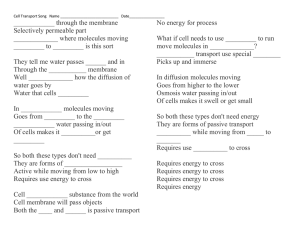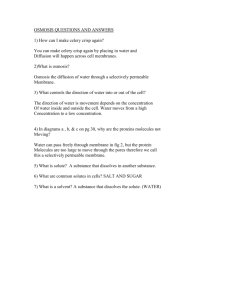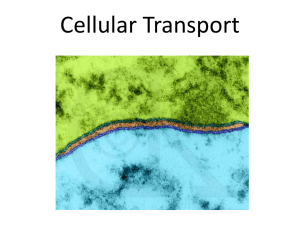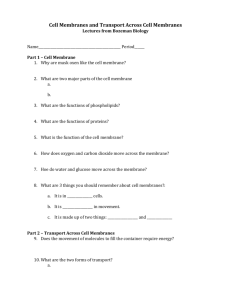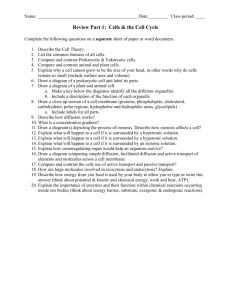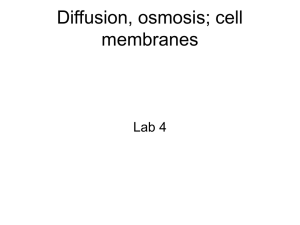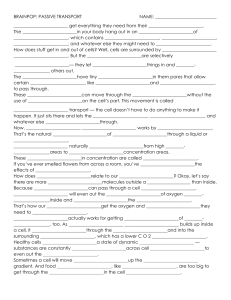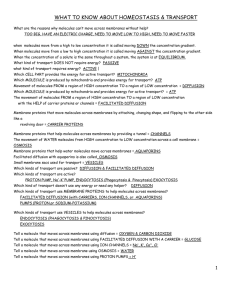Cell Structure 4A - Membranes
advertisement
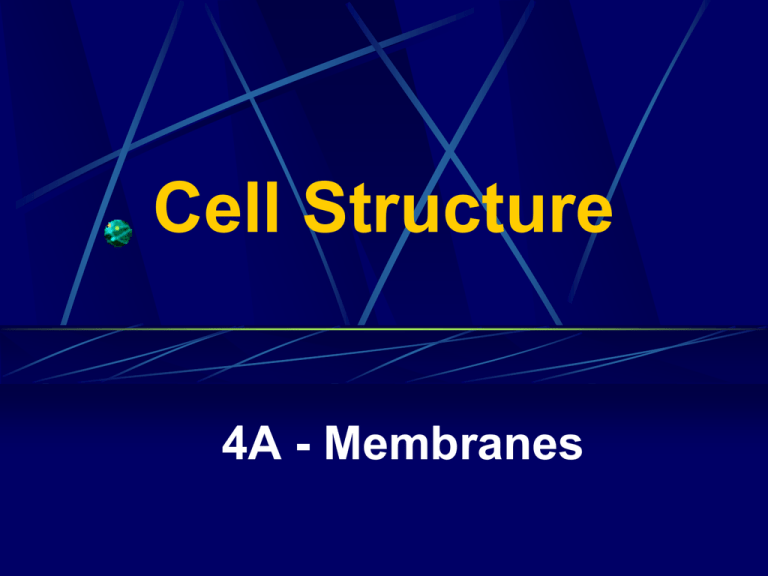
Cell Structure 4A - Membranes unit membrane • a thin structure composed of proteins and lipids • type of membrane found around all cells • around many of the structures inside cells • the outer boundary of a cell Important Property of Membranes selectively permeable: certain molecules go through them and other molecules do not Selectively Permeable Not all membranes are permeable to the same molecules. However water, oxygen, and carbon dioxide are small and easily passes through most membranes. How does a substance pass through a unit membrane? Passive Transport Active Transport PASSIVE TRANSPORT the passage of substances across a membrane without the use of energy This is the main way. two main forms of passive transport Diffusion Osmosis diffusion the movement of molecules from an area of higher concentration to an area of lower concentration diffusion diffusion can be speeded up by such things as heat,movement, and pressure osmosis the diffusion of water through a membrane ACTIVE TRANSPORT the passage of particles through a membrane; requires the use of cellular energy (sometimes because of the size of the molecule being so large, or going against gradient)
